Malik Bennabi and the Sociology of Colonizability: A Theory of Civilizational Decline and Renewal
Malik Bennabi (1905–1973), an Algerian social thinker and philosopher, holds a distinct place in the intellectual tradition of twentieth-century Islam. Writing during a period of crisis in the age of decolonization, Bennabi sought to address a question that perplexed many Muslim intellectuals of his time: why did Muslim societies—having once reached the zenith of human civilization—decline to such an extent that they became vulnerable to European colonial domination? While most of his contemporaries attributed Muslim weakness primarily to external aggression, Bennabi turned inward, developing an insightful sociological theory that explained the internal conditions which made colonization possible.
Born in Constantine, Algeria, under French occupation, Bennabi was a Paris-trained engineer who experienced both the intellectual vitality of European thought and the stark realities of colonial racism. This dual exposure—his education under a colonial regime and his lived experience of subjugation—shaped his unique analytical perspective. His writings, including major works such as Les Conditions de la Renaissance (The Conditions of Renaissance) and Vocation de l’Islam (The Vocation of Islam), present an integrated theory of civilizational dynamics that moves beyond political analysis to offer a profound sociological critique of post-colonial Muslim society.
Bennabi’s most enduring contribution lies in his theory of colonisabilité (colonizability), which argues that certain internal weaknesses within societies make them susceptible to external domination. This concept shifts the discourse from victimhood to responsibility—from asking merely, “What did the colonizers do to us?” to the far more unsettling question, “What made us open to being colonized?” Though controversial, this question remains deeply relevant in the modern context of globalization, cultural dependency, and identity crisis.
Key Concepts in Bennabi's Sociological Framework
The Civilization Equation: Man, Soil, and Time
At the core of Bennabi’s sociology lies his renowned “civilization equation”:
Civilization = (Man + Soil + Time)x Culture
This seemingly simple formula expresses a profound understanding of civilizational dynamics. For Bennabi, civilization does not emerge from material means alone, but from the harmonious interaction of three essential elements, directed by a guiding idea (fikrah muwajihhah).
“Man” in this context is not mere biological humanity, but a cultured and conscious individual oriented toward transcendent values. “Soil” refers not simply to physical land, but to the totality of material resources and natural potential available to a society. “Time” is not chronological duration, but purposeful and productive action—what Bennabi calls “social time,” in contrast to “lost time.”
The use of multiplication in the equation is deliberate: if any one of these components equals zero, civilization itself equals zero. A society may possess land and live through time, yet without individuals shaped by culture and guided by meaningful ideas, no true civilization can exist.
Colonisabilité: The Internal Conditions of Domination
Bennabi’s theory of colonisabilité (colonizability) stands as his most original contribution to post-colonial thought. He distinguishes colonization (istiʿmār)—a political and external phenomenon—from colonizability, which he defines as a sociological and internal condition. According to Bennabi, a society becomes colonizable when it enters a stage of civilizational decline marked by three interrelated pathologies.
First, the crisis of ideas (azmat al-afkār): When the formative ideas that once shaped a civilization lose their vitality and creative force, intellectual life becomes sterile and imitative. Bennabi describes this as the “post-Almohad stage,” the era following the decline of the great Islamic empires, when dynamic synthesis gave way to rigid traditionalism and intellectual stagnation.
Second, the accumulation of things (takdīs al-ashyāʾ): In a decaying civilization, material possessions become fetishized and detached from their moral or functional meaning. Bennabi notes that post-colonial societies often imitate the material products of Western civilization—technologies, consumer goods, and institutions—without adopting the cultural and intellectual foundations that produced them. This results in what he calls a “pseudo-civilization” (al-ḥaḍārah al-zāʾifah), a superficial modernity masking deeper civilizational bankruptcy.
Third, social corruption: When a society’s spiritual and moral core is eroded, its social relations degenerate into patterns of mutual exploitation rather than cooperation. Trust diminishes, collective purpose fades, and the community fractures into self-interested individuals and rival groups.
These three maladies together create a civilizational vacuum that external powers inevitably fill. For Bennabi, colonizability is therefore not a sign of mere weakness but a pathological state—a self-inflicted vulnerability that invites domination.
Culture, Ideas, and the Problem of Shayʾiyyah
At the heart of Bennabi’s sociology lies his theory of culture (thaqāfah). He defines culture not as the sum of accumulated knowledge or preserved traditions, but as the system of moral and aesthetic values through which human behaviour is regulated and personality is formed. In Bennabi’s view, culture is the practical expression of religious thought into social reality.
He introduces the concept of shayʾiyyah (trinification or reification), describing it as the pathological tendency to treat ideas as objects, to fetishize external forms while neglecting inner meanings, and to prioritise material accumulation over spiritual and intellectual growth. This reification, Bennabi observes, manifests in both religious and secular realms. In religion, it appears as ritualistic formalism detached from ethical transformation; in development, it takes the form of uncritical imitation—the adoption of Western institutions and technologies without their cultural and intellectual foundations.
The remedy for shayʾiyyah, according to Bennabi, lies in the renewal of authentic culture rooted in a living religious consciousness. This does not mean a nostalgic return to pre-modern ways but rather a dynamic and creative engagement with Islamic doctrine—an effort to generate solutions that are intellectually sound and spiritually grounded for the modern world.
Religion as a Sociological Force
In contrast to secularist social theorists who view religion merely as ideology or false consciousness, and to traditionalists who regard it solely as revealed law to be implemented, Bennabi approaches religion sociologically—as a transformative force capable of reshaping individual consciousness and collective behaviour. Drawing upon Durkheim’s insight into the social role of religion while infusing it with Islamic theological meaning, Bennabi argues that genuine religious consciousness generates what he calls “positive orientation” (al-tawajjuh al-ijābī).
This orientation, he explains, operates across three dimensions:
- Temporal, involving purposeful action within history;
- Spatial, referring to the rational organisation of the social and physical environment; and
- Spiritual, representing identification with transcendent meaning.
When these dimensions align under authentic religious leadership, they produce civilizational vitality and progress. Conversely, when they disintegrate—when religion degenerates into ritualism devoid of moral depth, when action loses direction, and when the environment is neglected—civilizational decay inevitably follows.
Comparative Perspectives: Bennabi in Sociological Context
Max Weber and the Protestant Ethic
Bennabi’s analysis parallels Max Weber’s classic thesis on The Protestant Ethic and the Spirit of Capitalism. Both examine how religious thought shapes economic behaviour and social interaction. However, while Weber traced capitalism’s origins to specific Protestant doctrines, Bennabi argues that any authentic religious consciousness can generate civilizational dynamism by directing human action toward transcendent goals and fostering disciplined, purposeful conduct.
The difference between them lies in their conclusions. Weber ultimately secularised his analysis, treating the Protestant ethic as a cultural phenomenon whose religious dimension became irrelevant once capitalism matured. Bennabi, in contrast, insists that religious consciousness remains indispensable to the enduring vitality of civilization. To him, secularisation is not a mark of progress but a symptom of decline—“the Western disease,” as he calls it—one that Muslim societies risk imitating at their peril.
Frantz Fanon and Post-Colonial Psychology
Bennabi’s contemporary, Frantz Fanon, shared his concern with decolonisation but approached it through revolutionary and psychological frameworks. Fanon focused on the mental trauma of colonisation and viewed violence as a cleansing force for reclaiming dignity. Bennabi, while acknowledging the psychological damage inflicted by colonialism, placed greater emphasis on the internal weaknesses that made societies susceptible to domination in the first place.
Both thinkers recognised that political independence alone could not ensure true liberation; deeper moral and intellectual renewal was necessary. Yet, Fanon’s revolutionary idealism contrasts with Bennabi’s sober conviction that civilizational rebirth demands generations of sustained effort—it cannot be achieved by political fervour alone.
Arnold Toynbee and Civilizational Cycles
Bennabi’s civilizational theory also bears resemblance to Arnold Toynbee’s concept of the cyclical rise and fall of civilizations. Both thinkers viewed civilizations as organic entities that pass through phases of growth, flourishing, and decline, and both highlighted the pivotal role of creative minorities in initiating renewal.
However, Bennabi’s Islamic framework leads him to different conclusions from Toynbee’s historical determinism. While Toynbee regarded civilizational decay as largely irreversible—giving way to the birth of new civilizations—Bennabi saw in Islam a perennial source of renewal (tajdīd). The Qur’anic and prophetic paradigm of cyclical revival through reformers (mujaddidūn) provides, in Bennabi’s view, a theological foundation for hope and rebirth—something absent from Toynbee’s more fatalistic vision of history.
Contemporary Relevance: Colonizability in the Modern Era
Cultural Dependency and Neo-Colonialism
Bennabi’s theory of colonizability remains strikingly accurate in describing the modern forms of dependency that persist long after formal decolonisation. Many Muslim societies today display what Bennabi would term a continuing colonizability: economic dependency on Western systems, intellectual dependency on Western philosophical frameworks, and cultural dependency through the mass adoption of Western consumerist lifestyles.
His critique of shayʿiyyah sheds light on the persistent failures of development. Most Muslim societies have imported the institutional structures of modernity—parliaments, universities, and financial systems—without cultivating the cultural and intellectual ethos necessary for their proper functioning. The result is the very “pseudo-civilization” (al-ḥaḍārah al-zāʾifah) Bennabi warned against: a façade of modernity concealing deep civilizational insolvency.
Identity Crisis and Cultural Authenticity
Modern Muslim communities face a severe identity crisis, torn between religious orthodoxy and secular modernity, between authentic cultural expression and the pressures of global homogenisation. Bennabi’s framework provides an intellectual compass for navigating this tension, enabling societies to avoid both blind Westernization and rigid traditionalism.
His practical understanding of culture—as an ethical orientation rather than a static inheritance—highlights the dynamic nature of Islamic civilization and the adaptability of its moral foundations. This insight is particularly valuable in contexts of migration, minority life, and cultural pluralism, where Muslims are compelled to express their faith and identity in new social settings.
The Crisis of Muslim Intellectual Life
Bennabi’s relevance is perhaps most visible in the current crisis of Muslim intellectual life. Despite political independence and measurable economic growth, many Muslim-majority societies remain consumers rather than producers of knowledge, dependent on Western academic institutions and research centres for scientific and technological innovation.
Bennabi’s “diagnosis” of the crisis of ideas (azmat al-afkār) and his call for intellectual renewal urge Muslim thinkers to move beyond the sterile dichotomy of modernism versus traditionalism and to cultivate a creative synthesis. His conviction that the renewal of civilization requires not merely political or economic reform, but a profound intellectual and spiritual transformation, continues to offer an essential corrective to the narrow, technocratic models of development that dominate the modern world.
Conclusion: Bennabi’s Legacy of Responsibility
Malik Bennabi examines colonizability through a sociological lens to understand how civilizations decline and how new social structures emerge. His greatest contribution lies not in providing ready-made solutions but in reframing the essential questions Muslim societies must confront. Bennabi shifts the focus from external threats to internal weaknesses, urging communities to recognise that true liberation begins with cultural and intellectual reform, not merely political independence.
Bennabi argues that Western colonial power alone did not create colonialism; rather, it found fertile ground in the pre-existing vulnerabilities of Muslim societies. His well-known reflections on colonialism convey that weakness precedes domination—foreign occupation becomes possible only after internal decay sets in. Yet this acknowledgement does not excuse colonial oppression or modern forms of global exploitation. Instead, Bennabi transforms it into a moral challenge for self-renewal.
Despite his critique, Bennabi’s thought remains deeply hopeful. Since decline originates from within, so too must the sources of revival. He insists that civilizational renewal rests on cultural creativity, intellectual vitality, and spiritual depth. Material progress or borrowed models are insufficient; genuine renaissance must arise organically through the reform of thought, culture, and purposeful action.
Bennabi’s work endures as a vital guide for contemporary Muslim societies facing the pressures of globalization, political instability, and identity crises. His message warns against repeating the errors of the past while inspiring the creation of new cultural and moral foundations. Through his theory, colonizability becomes both a diagnostic tool for decline and a framework for transformation. He calls upon Muslims to build their future through authentic faith, moral responsibility, and creative engagement—paving the way for a new age of nahḍah (renaissance).
About the author:
Javad Ali is a third-year undergraduate student in the Department of Civilizational Studies at Shihab Thangal Islamic College, Vakery, Wayanad, Kerala, India. He hails from Kodakkad, Malappuram.
References
- Ar-Raniry State Islamic University Repository. (2019). Renaissance Questions on the 70th Anniversary of The Conditions of Renaissance.
- Bariun, Fawzia. (1993). Malek Bennabi: His Life and Theory of Civilization. Kuala Lumpur: Buaya Ilmu Sdn. Bhd.
- Bennabi, M. (1949). Les conditions de la renaissance [The Conditions of the Renaissance].
- Bennabi, M. (2003). The Question of Culture. Kuala Lumpur: Islamic Book Trust.
- Berghout, A. (2001). Views of Malik Bennabi on Civilizational Renewal. Intellectual Discourse.
- Ilkogretim Online. (n.d.). The Islamic Framework in the Thought of Malik Ibn Nabi.
- International Journal of Innovation and Technology. (2021). Insights from Malek Bennabi's Theory.
- New Age Islam. (2021). Malek Bennabi, Algerian Thinker and Muslim Intellectual.
- Psychology and Education. (2020). The Colonizability of African and Asian Societies from Bennabi's Perspective.
- Subhani, Z. H. (2020). Bennabi's Thoughts on Civilization: Analyzing the New Discourse. Journal of Asian and African Social Science and Humanities.
- University of Michigan. (2020). Malik Bennabi's Life and Theory of Civilization: Man + Soil + Time Equation.
Disclaimer
The views expressed in this article are the author’s own and do not necessarily mirror Islamonweb’s editorial stance.

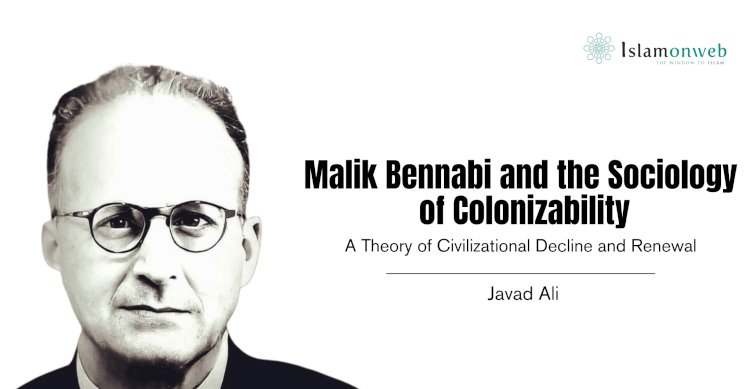



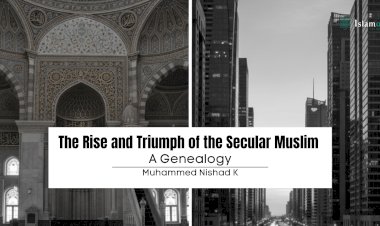

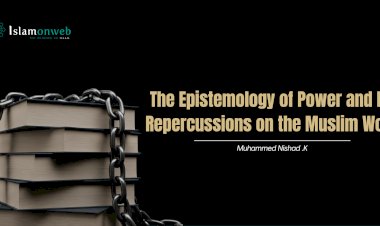
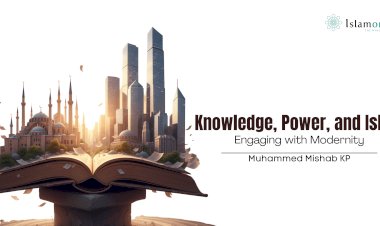
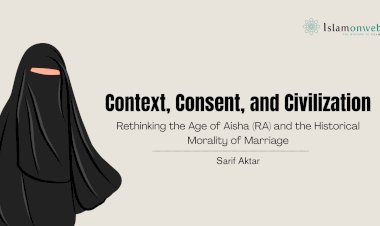














Leave A Comment